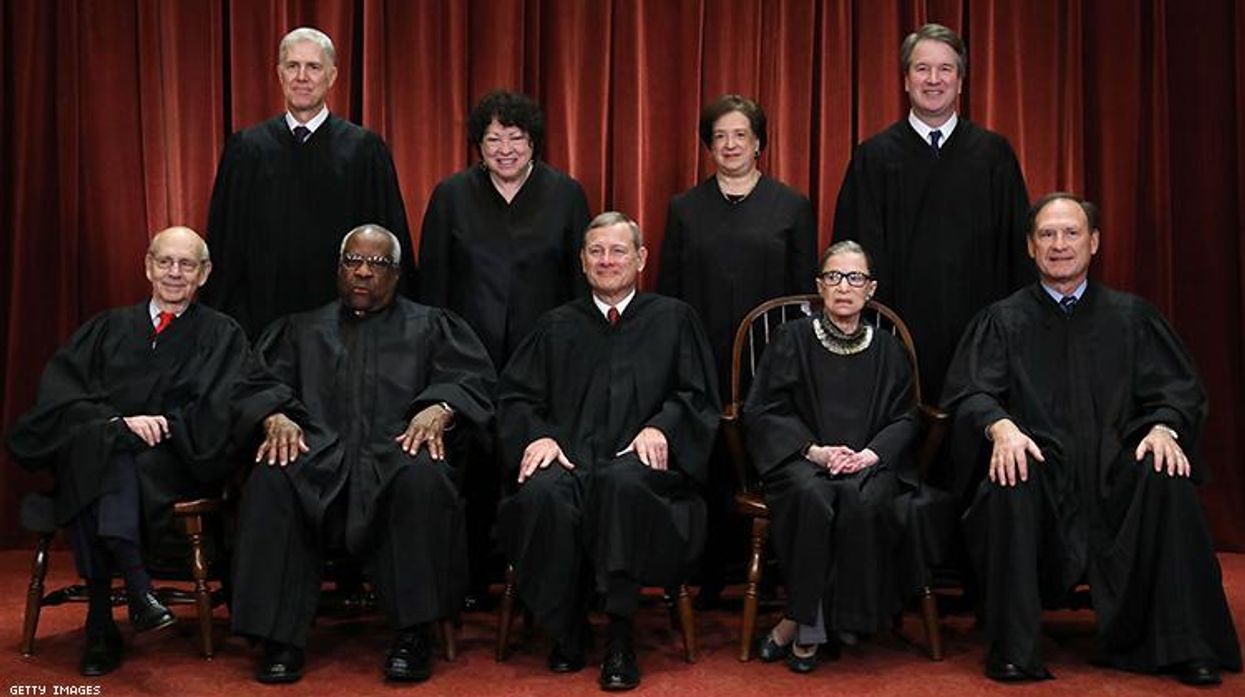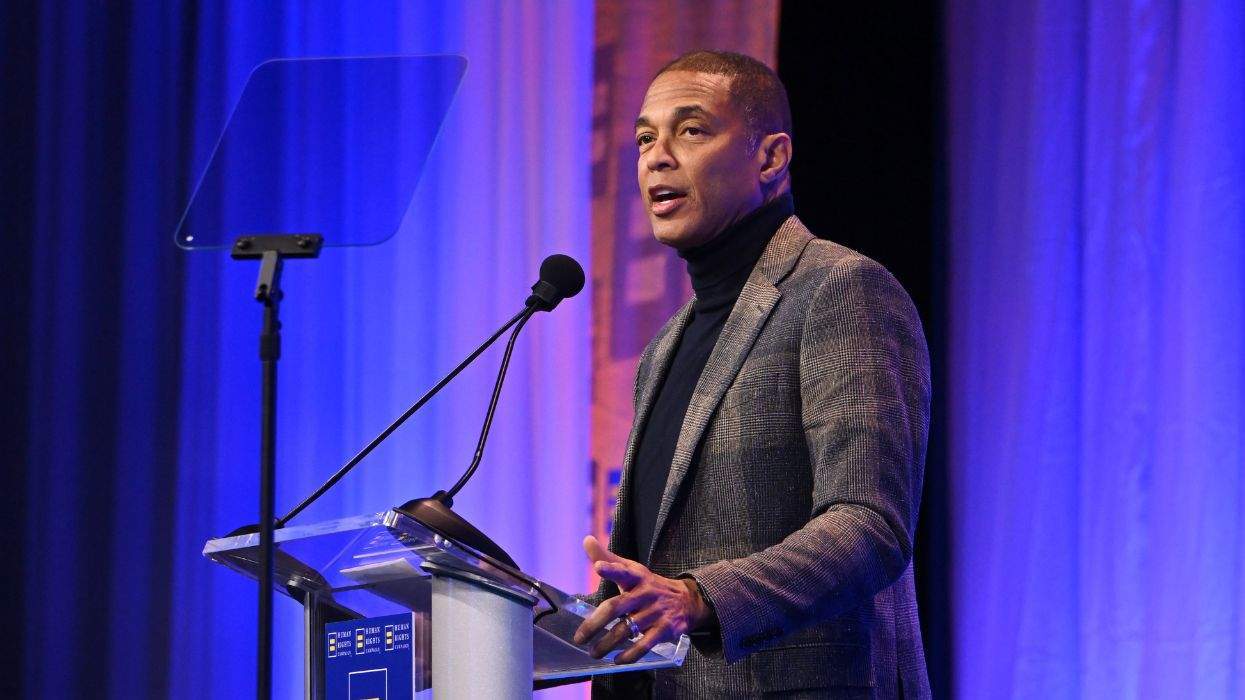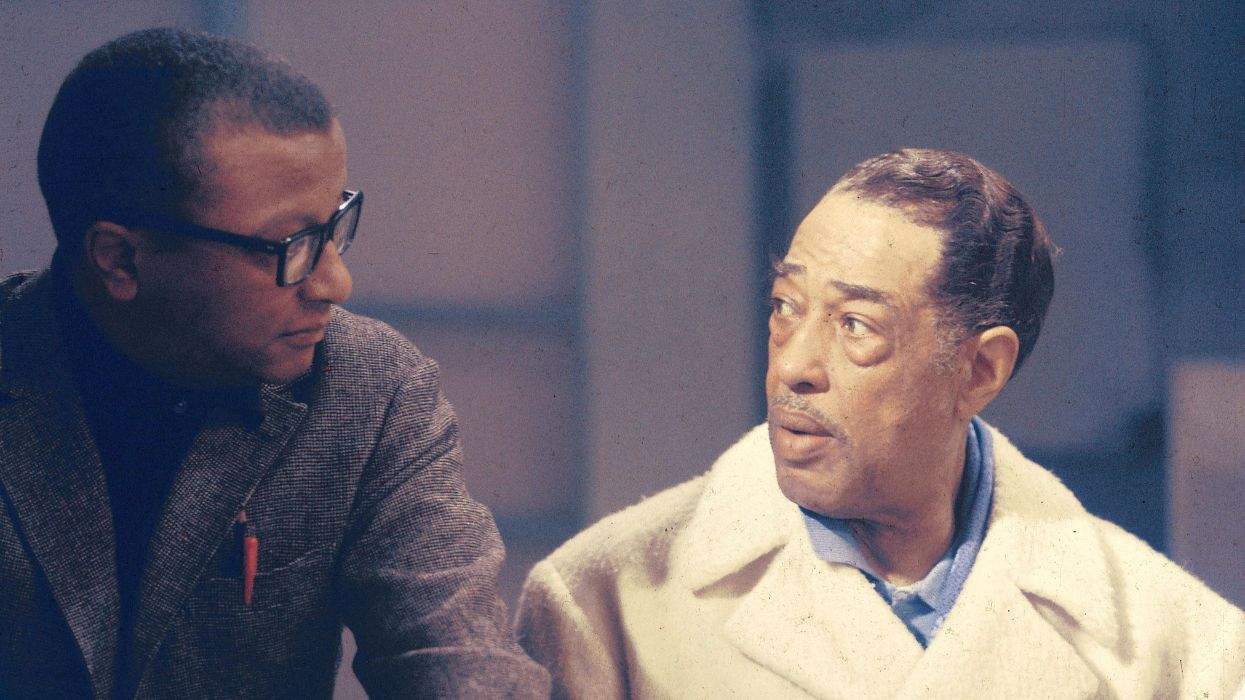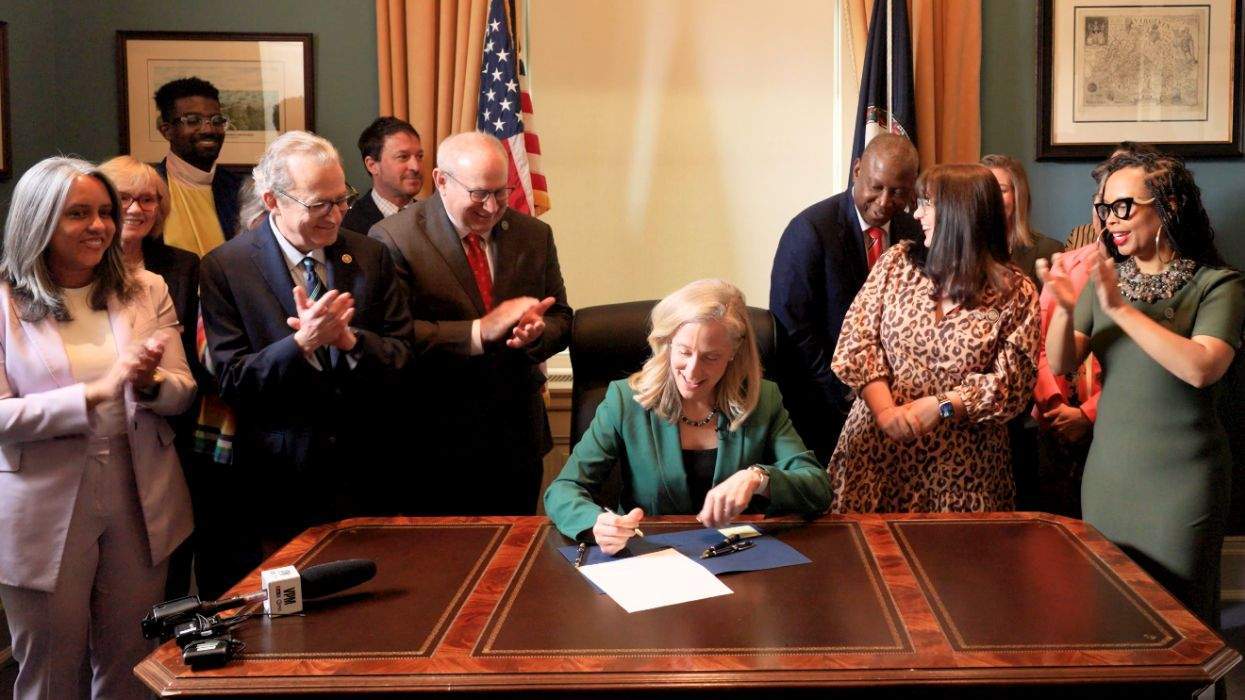It has been four years to the day since the Supreme Court extended the right to marry to people in same-sex relationships. The lives of millions of people, including my own, have been transformed by that decision. While marriage equality is a major civil rights milestone for our country, LGBTQ rights are far from fully won, and important cases before the Supreme Court right now could roll back some of the progress that our community has fought for and achieved.
Long before the Supreme Court ruled in the case brought by 30 other plaintiffs and me, I had made the decision to come out. Many people who know me now know me as member of the LGBTQ community, someone who is out and open in all aspects of life. Unfortunately, many LGBTQ people still live a closeted life, a life of fear.
Every day, many LGBTQ people ask themselves whether living as their true selves will cause them harm. "Will this store turn me away?" or "if I tell my coworkers, will I get fired?" are not uncommon thoughts. For LGBTQ people of color -- Black trans women in particular -- being out can bring harassment, violence, and even death.
Aimee Stephens, whose workplace discrimination case will be argued before the Supreme Court this fall, had no choice but to live as her true self. After nearly 30 years of working in funeral services, Aimee told her boss that she is a woman. What happened to Aimee next was what so many LGBTQ people fear will happen to them should they come out: she was fired, left without health insurance or the ability to provide for her wife and their family.
Aimee, like most Americans, thought that firing someone because of who they are is wrong, and should be against the law.
And she's right. In 2018, a federal appeals court agreed with Aimee and the majority of people in America when it ruled that firing someone for being trans is a form of sexual discrimination and a violation of federal law. This wasn't the first federal court to say so. For decades now, state and federal courts have recognized that discriminating against someone who is LGBTQ is no different than discrimination on the basis of sex.
The same legal team that is representing Aimee, the American Civil Liberties Union's LGBT & HIV Project, worked on my case, Edie Windsor's case, and the cases of many others that secured marriage equality. Today, the ACLU filed briefs on Aimee's behalf at the Supreme Court, arguing that federal law protects LGBTQ people from workplace discrimination. It makes for a powerful moment that this comes on the anniversary of my victory at the Supreme Court in 2015 and Edie's in 2013, and as we mark 50 years since the Stonewall rebellion.
Sadly, this anniversary comes at a time when the Trump administration is not working to protect us from the harms of discrimination but is instead attacking us further. In fact, in one of their many attacks on LGBTQ people, Trump's Justice Department told the Supreme Court that the lower courts have been wrong in saying that trans people have protections in our civil rights laws.
When I brought my case to the Supreme Court, I knew that the freedom to marry was just one part of the lives that LGBTQ people deserve to lead. On the June morning in 2015 when we won marriage equality, I said in my speech on the steps of the Supreme Court that the words etched above the Court's doors -- equal justice under law -- now apply to us, too. If the Supreme Court rules against Aimee in her case, it will be saying that LGBTQ people -- and trans people in particular -- don't have the right to live public lives as their true selves.
No matter what happens in Aimee's case, and the case of two men fired for being gay -- Don Zarda and Gerald Bostock -- that accompanies it, we need a Senate that will pass the Equality Act to fill in the gaps in our nation's civil rights laws. We also need a president who will sign it.
Civil rights laws won't immediately end discrimination against the LGBTQ community or the violence Black trans women face in our streets. The courts can, however, send a powerful message that trans people belong here and that no one should be fired because of who they are. That is a worthy legacy for the Supreme Court.
Jim Obergefell was the named plaintiff in Obergefell v. Hodges and is coauthor of Love Wins, published by William Morrow/Harper Collins.















